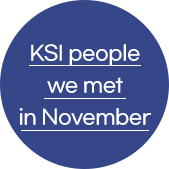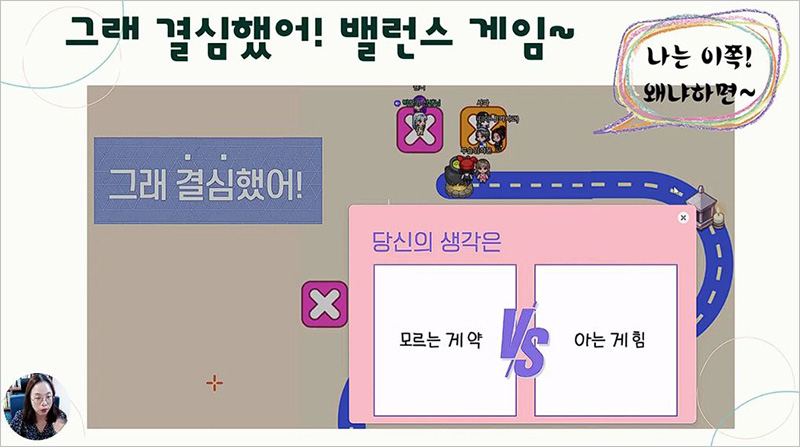

Instructor Park Geun-young of Metaverse King Sejong Institute,
exploring the possibilities of Metaverse Korean learning
Metaverse King Sejong Institute (http://ksif.zep.site), which was officially launched on February 7, has
established itself as an important starting point, lowering the entry barriers to Korean language learning for
potential learners. We met with Instructor Park Geun-young of Metaverse King Sejong Institute to talk about the
current status and advantages of Metaverse King Sejong Institute and learn about the correct Korean teaching
methods for the Metaverse.
Greetings! Please introduce yourself and tell us how you became a Korean language instructor at Metaverse King Sejong Institute?
My name is Park Geun-young, and I teach Korean language at a university in Jeollabuk-do. I majored in Korean language education and taught it, and I became interested in designing curricula and lessons, so I majored in educational technology. While working on my doctorate, I learned about the Korean speaking classes at Metaverse King Sejong Institute, which allows one to communicate with Korean learners across time and space, so I applied without hesitation.
You were trained in the Metaverse space to become an instructor before the start of the third semester of Metaverse King Sejong Institute Korean Speaking Class. How was the training?
At first, it was quite difficult. I felt a lot of pressure having to design a metaverse space and a class that fitted learning goals at the same time, but through the training, I was able to understand more about the metaverse, and learn about its technical aspects. The metaverse is a space where active and self-directed learning is possible, depending on how you use that space. There are endless possibilities in using the metaverse, and I am sharing opinions with other instructors on researching it.
Instructors trained in the Metaverse space before the start of the third semester of Metaverse King Sejong Institute.
Do you feel the enthusiasm of Korean language learners at Metaverse King Sejong Institute?
There are learners from many different countries, including Indonesia, Myanmar, Vietnam, and Mexico. Above all, they have the deepest passion for learning the Korean language. In every class, learners can freely express their thoughts on Korean language and culture, and listen to other students’ opinions. It motivates me very much to see such keen and active students, and I also get to learn a lot of new things.
What levels of classes do you teach, and what kinds of learners are there in the classes?
I teach Intermediate 2 level students using the textbook King Sejong Institute Practical Korean 4. We have a wide range of learners, including high school students, college students, office workers, and housewives. They learn Korean for diverse reasons, such as their love for K-pop, curiosity about Korean culture, and studying Korean as a second language. For this reason, each learner shares his or her stories, and thinks from their own perspectives in speaking classes, and so become more interested and more active in learning.
Instructor Park Geun-young’s Metaverse classes
How are speaking classes in Metaverse conducted? Do you feel any advantages through using the new edu-tech called Metaverse?
Learners of Metaverse King Sejong Institute speaking classes study by checking the class materials prepared by instructors through padlets and e-mail before classes. They improve their speaking abilities through various activities in the Metaverse speaking classes. They can also come back to the lesson to repeat whenever they want. Students are able to engage in a variety of complementary learning options by using the virtual world called the Metaverse, as well as in the real world. I believe this is a big advantage of Korean language learning, utilizing the Metaverse.
On the other hand, there must be limitations regarding teaching and learning a language non-face-to-face.
When I first gave lessons via the Metaverse, it was difficult because I couldn’t be sure if my messages were being correctly delivered. There are also cases where face-to-face video lessons are difficult because students cannot turn on their cameras. That's why we design our classes so that students can participate in activities on their own, and express their opinions at any time. Students are instructed in advance that they can express simple opinions using emoticons and ask questions using a microphone or chat window. We also help learners to have self-directed learning experiences using game elements so that they can find information on words or topics on their own and talk about them. Although we cannot see the faces of the learners, their participation can be checked intuitively through their avatars’ movements and expressions. I no longer feel the lack of communication in non-face-to-face classes. I think the metaverse is a space that feels very real.
 Using game elements in Metaverse lessons
Using game elements in Metaverse lessons
In Metaverse King Sejong Institute, there is a club for instructors that supports strengthening “digital literacy,” which refers to literacy skills to effectively utilize digital contents. Have you participated in any club activities?
I started club activities by wanting to understand the characteristics and cultural elements of different regions in Korea, within the bigger concept of “Korea in the Metaverse King Sejong Institute.” The first activity I participated in was a stamp tour called “Jeonjusienne.” It was developed for students to experience the cultural properties, attractions, and food of Jeonju via the Metaverse, and understand them. Currently, we are developing a space to allow students to experience the tastes and charms of Seoul, focusing on cultural properties of the city.
Captured image of the club “Jeonjusienne”
While working as an instructor at Metaverse King Sejong Institute, did you have any memorable episodes or issues regarding Korean language education?
All Metaverse King Sejong Institute learners have their own goals. Some are preparing to study in Korea, while others may want to improve their Korean skills for working as Korean interpreters. Some want to learn more about Korean culture. Although everyone has different goals, the Metaverse is becoming a new learning space that helps learners attain their goals. Education using the virtual world is developing rapidly. I believe it isn’t merely its use as a tool in our changing times, but also reflecting the changes in the direction of education. In that respect, the Metaverse reveals a world presenting a new direction of education, and a space that creates new experiences with various platforms and educational elements.
What kind of an instructor do you want to be in the future, using your experience at Metaverse King Sejong Institute?
While teaching Korean through the metaverse, I became interested in the educational elements that learners face, and I am currently researching Korean language education based on multi-literacy. I am thinking about what elements are necessary in an era where information is acquired from both real world and virtual reality, and how education should be approached when teaching the Korean language in the virtual world. I also have a dream of creating a hybrid space that will continue to grow in line with the changing times and learners’ demands.
Can you give a few words of advice for the learners at Metaverse King Sejong Institute?
For those of you who love Korea and the Korean language. Wherever you are, that place can be in Korea. Right here, right now! So, please come to Metaverse King Sejong Institute. I hope you enjoy studying the Korean language and learning more about Korea here. All of the instructors at Metaverse King Sejong Institute will support you in getting closer to realizing your dreams and goals!